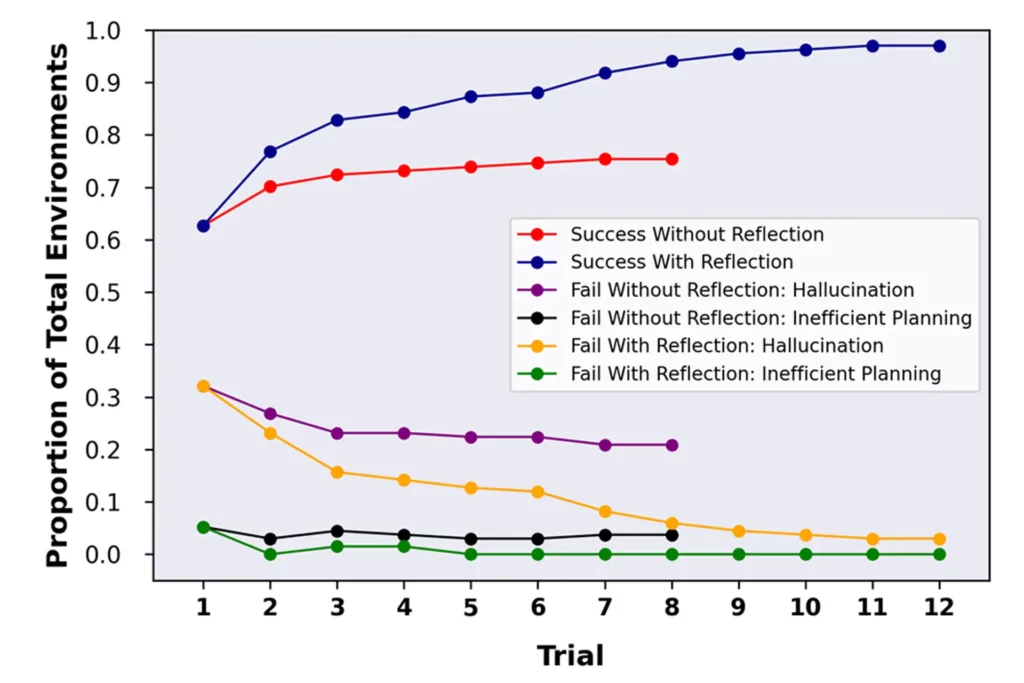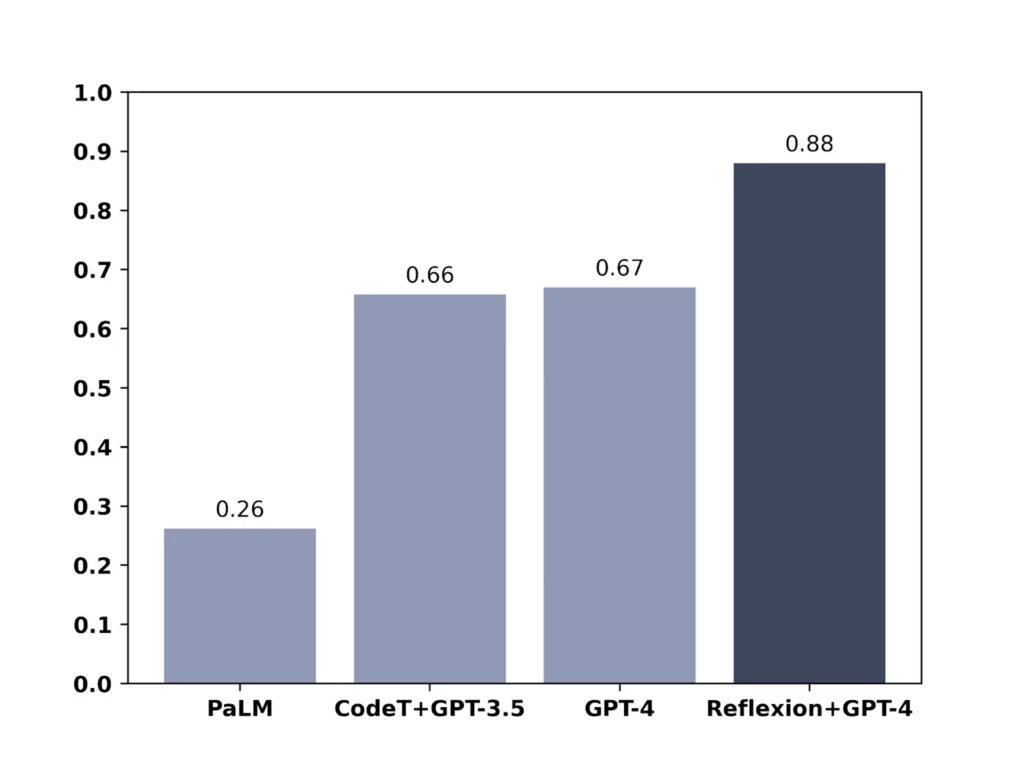Researchers at Northwestern University and MIT have discovered that GPT-4, the latest AI language model, can dramatically improve its performance by critiquing its own work. This self-reflection led to a 30% increase in accuracy, demonstrating GPT-4’s impressive capabilities and potential for further development.
Introducing the “Reflexion” Technique
The researchers, Noah Shinn and Ashwin Gopinath, developed a technique called “Reflexion.” This method enables GPT-4 to emulate human-like self-reflection, allowing it to evaluate its performance, identify errors, and rewrite its solutions. This innovative approach resulted in significant improvements across various tests.

Record-Breaking Performance on HumanEval Test
Using the Reflexion technique, GPT-4’s accuracy on the HumanEval coding test increased from 67% to an astounding 88%. This test consists of 164 Python programming problems that the AI model had never seen before, proving that self-reflective loops can lead to remarkable improvements.

Near-Perfect Score on AlfWorld Test
The AlfWorld test, which measures an AI’s decision-making and problem-solving abilities in interactive environments, saw GPT-4’s performance skyrocket from 73% to a near-perfect 97% after implementing the Reflexion technique. This impressive result demonstrates GPT-4’s ability to adapt and learn from its own mistakes.
Significant Improvement on HotPotQA Test
In the HotPotQA test, GPT-4’s accuracy improved from 34% to 54% using the Reflexion method. This test challenges AI agents to parse content and reason over supporting documents, further highlighting the potential of the self-reflection technique in enhancing AI performance.
Source: https://arxiv.org/abs/2303.11366
More content at ChaseRich.com. Join our community and follow us on our Facebook page, Facebook Group, and Twitter.

